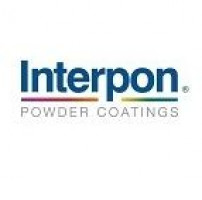-
New Zealand
Copyright © 2025 Powered by BCI Media Group Pty Ltd
Confirm Submission
Are you sure want to adding all Products to your Library?
Contact Detail
17 Nov 2022 by Interpon Powder Coatings

A bold and significant new development has emerged in St Kilda as a ‘liveable lego tower’, rising in tiered rainbow cubes that appear to balance like building blocks. Aptly named The Icon, the distinctive new building is wrapped in expanded aluminium mesh that changes colour as sunlight moves.
The inspiration of artist Matthew Johnson, who worked with Jackson Clements Burrows Architects to conceptualise the distinctive complex, was achieved with Interpon Powder Coating on board as a collaborative partner.
“My vision for the project was for people look up and see something interesting, to see something that is in a sense iconographic – as a marker or reference point,” explains Matthew.
Interpon were involved with the project “right from the start”, explains Gareth Connell, Regional Specification, Interpon. Their association began after they were introduced to Pace Developments to discuss colour and product selection for the external façade.

“We work closely with Interpon, and Pace asked us to quote with the product already powder coated,” says Ian Dunstan, southern regional sales manager at Locker Group, who manufacture perforated and expanded metal.
Interpon were able to step in and develop the colour range separately, to meet the design brief and provide an ultra-durable coating system that meet the expectations of all parties.
“The team at Interpon were very accommodating, engaged and professional in taking the concept on board,” says Matthew. “We were able to manifest unique colours based on the ratios I created with their chemist, inventing a whole new series of colours. This was crucial, as each level is depicted in different colour hue variations from earth to sky, which cross reference the nature of the geographical and environmental stratums. This flux of seasonal change is portrayed through subtle tonal gradation. Working with Interpon was a very fluid operation.”
Interpon has collaborated on several high profile property developments and high rises over the years – although perhaps none quite as unique or with as many distinct characteristics as The Icon.
“The nature of expanded aluminium mesh is such that it is formed by shearing and expanding aluminium sheet to create the ‘3D form’ effect. A visually appealing system for a façade, the shearing of the metal can present issues with very sharp edges, particularly in aggressive coastal environments,” Gareth explains.
“Part of understanding this project was to comprehend as many elements as possible. Given the location was in St Kilda, with the bay just over 1.5km away, environmental considerations such as UV degradation, exposure to corrosive sea salts and prevailing winds needed to be considered.”
After reviewing available data, such as Bureau of Meteorology weather patterns and local geography and topography maps, a specific duplex or two-layer powder finishing system was specified.

“This consisted of a controlled preparation process for the expanded aluminium sheets. An epoxy barrier primer (was specified) to provide enhanced protection and to build the sharp edges in order to minimise issues associated with filiform corrosion. And the ultra-durability polyester powder top coat was developed in 34 distinct colours,” Gareth says.
After the colour range was developed, it was applied by powder coating specialists Mansutti Bros. Lead by managing director Claude Mansutti, the team refinished hundreds of mesh panels over a period of nine months.
“It was a major benefit to be using powder coating because, unlike liquid paints, powder is cured once it comes out of the oven and it’s ready to go once it’s cooled down. If they were painted, the drying phase could delay the process from refinish to installation by up to two weeks. It meant we were able to keep to a very strict schedule,” Claude says.
“The project involved a lot of large spreadsheet work. There were 17 floors and over 30 colours, with panels in 15 sizes; it was quite a matrix to work with. But the end result is so different and so unique. It’s an interesting design and I’m sure it’s going to be a talking point for the area for many years.”



